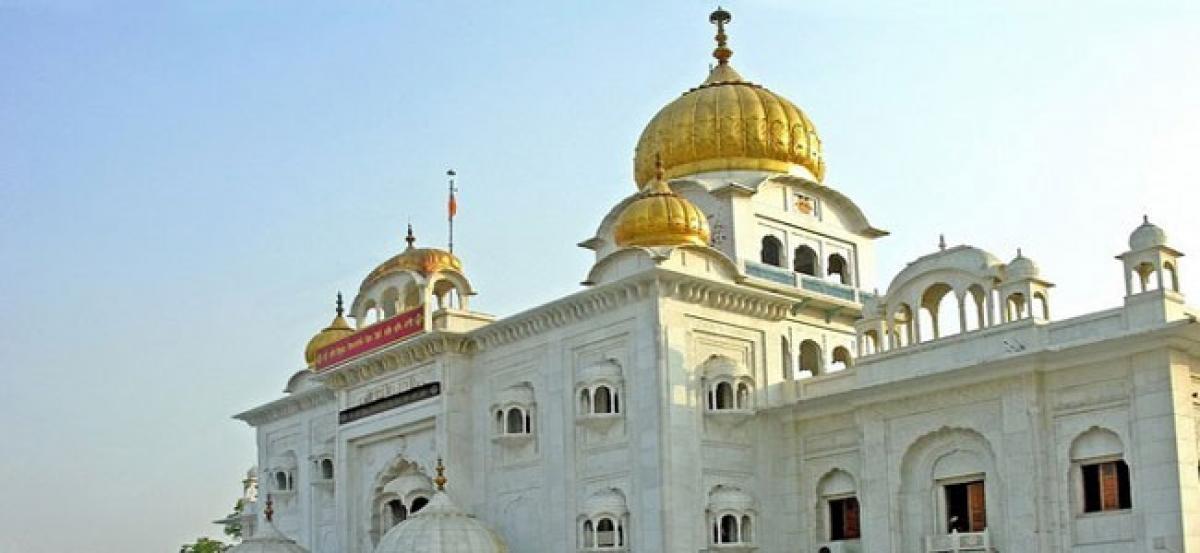Live
- Civic chief inspects MSME survey
- MLA inaugurates development projects in Chittoor
- SBI offers collateral-free loans to empower farmer groups
- Dist police annual sports meet begins
- UN experts urge US to end 'double standards' on Israel-Palestine conflict
- Police recovers 220 lost mobiles
- Former Minister Avanti Srinivas Resigns from YSRCP, Citing Personal Reasons
- 3-judge Special Bench of SC to hear today pleas against Places of Worship Act
- MP CM to lay foundation stone for Rs 1,700 crore Sondwa irrigation project in Alirajpur
- Garena Free Fire MAX Redeem Codes for December 12, 2024 – Get Free Rewards
Just In

Community kitchens in ten major gurdwaras in Delhi are set to make healthy food accessible to everyone through a stricter set of safety standards, hygiene, quality and flavours.
New Delhi: Community kitchens in ten major gurdwaras in Delhi are set to make healthy food accessible to everyone through a stricter set of safety standards, hygiene, quality and flavours.
These kitchens, also popularly known as langars operate on principles rooted in bringing people together and advocating good health through nutritional food, said Manjit Singh G.K., President of the Delhi Sikh Gurdwara Management Committee (DSGMC) today.
He said that the DSGMC has surpassed the stringent targets set by Union Ministry of Health under FSSAI project BHOG (Blissful and Hygienic Offering to God) to ensure that the Sikh Sangat (visiting devotees) is served safe, hygienic and nutritious food from the kitchen (Guru ka Langar) and prasad at all gurdwaras managed by it in Delhi.
Project BHOG was among the Safe and Nutritious Food (SNF) bouquet of initiatives launched by the country's apex food regulator last year.Around 100,000 (one lakh) devotees take the Prasad (Guru Ka Langar) at DSGMC-controlled gurdwaras on week days, while over the weekend, it is more than 500,000(five lakhs). Festivals like Holi, Baishakhi and Gurpurb also see huge crowds at community kitchens.
The Prasad consists usually of chapatis, dal, sabzi and kheer, which are served at regular intervals.
The objective is to provide homely food to thousands of urban poor who depend on these langars to satiate themselves.
Manjit Singh GK said that the gurdwara management committee has put in place food safety standards and hygiene maintenance. Ingredients are standardised and tested for purity at government laboratories before use in cooking.
He said vegetables are directly procured from the wholesale Azadpur Mandi to ensure freshness. Employees engaged in langars are required to wear yellow aprons, gloves and turbans.
Manjit Singh GK said all langars are cleaned twice a day. Each langar building has marbled floors and proper ventilation to ensure a healthy environment.
"Anyone and everyone can work in these kitchen. In fact, volunteers do more work than the staff in preparing meals. The only rule that one has to adhere to is serve with clean hands," he said.
Wastage like flowers, food ,fruits are taken away in large trolleys and deposited with the civic bodies, he said, adding that DSGMC keeps in regular touch with civic agencies and observes guidelines for maintaining cleanliness, hygiene and purity.
He said workshops and training sessions are organised at regular intervals to sensitize staff and volunteers about the need for observing food safety regulations and health hygiene in gurdwara community kitchens.

© 2024 Hyderabad Media House Limited/The Hans India. All rights reserved. Powered by hocalwire.com







